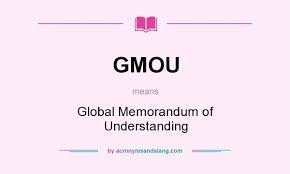IN the Niger Delta today, the uneasy peace between oil companies and their host communities hangs on a fragile thread: the Global Memorandum of Understanding (GMOU).
These agreements were designed to create a framework for partnership, ensuring that communities benefit from the resources extracted from their land while companies enjoy uninterrupted operations.
Yet, from all indications, the GMOU has become more honoured in the breach than in the observance. Underscoring volatile relationship, the Special Adviser to the Governor on Peace Building and Conflict Resolution, Chief Edwin Uzor, recently revealed that his office has handled cases of such conflict since May 2023.
This is a proof of how deeply mistrust runs between oil companies and their host communities,breeding anger, suspicion, and eventually, unrest or inevitable agitations.
The principle of the GMOU is simple: any company entering a community must sign a GMOU, spelling out obligations ranging from road construction and bonuses to employment opportunities and scholarships. These provisions are not luxuries. They are the lifelines by which impoverished oilbearing communities seek to share in the wealth beneath their soil.
However, recent events in Delta State expose how fragile and conflict-prone the GMOU framework has become. In April 2025, the Irri community in Isoko South Local Government Area staged protests against OANDO, accusing the company of neglect and failure to honour inherited GMOU obligations, with banners reading: “No Project Since 2017” and “We Need Electricity.”
That same month, 28 host communities of OML 34 shut down a gas plant operated by NEPL and ND Western after their GMOU demands were ignored. By June, Kokodiagbene in Gbaramatu Kingdom accused Chevron of “divide-and-rule” tactics, warning of a permanent shutdown of its flow station if the manoeuvre continued.
One of the most damaging practices by oil companies is the creation of divide-and-rule systems. Instead of engaging with the community as a whole, companies often handpick preferred individuals to deal with, sidelining established leadership structures. The result is factionalism, mistrust, and, in many cases, violent conflict.
Another disturbing factor is the role of some community representatives. There are instances where representatives deliberately misinform their people to serve selfish ends.These flashpoints show a troubling pattern: GMOUs are either ignored, manipulated, or weaponised, fuelling mistrust and community unrest.
The irony is that these conflicts harm the companies as much as the communities. When oil-bearing communities erupt in protest, oil production drops. Pipelines are shut down, workers are chased away, and the state loses revenue. Peace is in everyone’s interest, yet it continues to be undermined by a refusal to honour agreements.
It is important to stress that peace cannot be decreed from above. The state government has invested heavily in security and mediation to keep Delta State relatively peaceful. But the government cannot continue to play the role of firefighter forever. True peace will only come when oil companies and their hosts respect the spirit and letter of the GMOU.
This is where traditional rulers should play a more decisive role. Many monarchs have indeed been instrumental in calming frayed nerves and ensuring dialogue triumphs over violence.
But some have failed to rise above personal interest, sometimes even becoming part of the problem. The credibility of the GMOU process depends heavily on local leadership, and when that leadership is compromised, chaos follows.
The path forward is clear, though not simple. Oil companies must abandon the destructive habit of selective engagement and embrace sincerity. On their part, the host communities must hold their representatives accountable, ensuring that no one person’s greed undermines collective progress. And traditional rulers must jealously guard their role as custodians of peace rather than brokers of division.
Above all, the sanctity of the GMOU must be restored. It is not just a piece of paper; it is a social contract. The choice before oil companies is stark. They can either keep faith with their agreements and operate in a stable environment or continue the cycle of deceit and face recurring disruptions.


